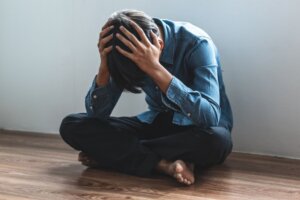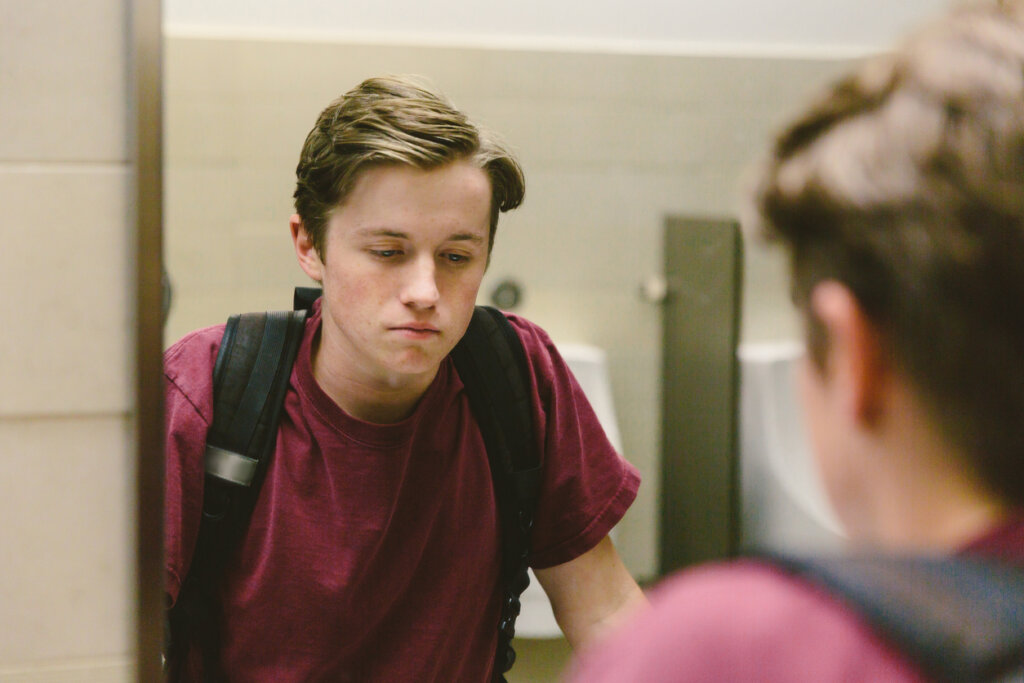How I Dealt With Losing Everything: A Personal Account

At the age of 16, I lost everything, or so I thought. However, the passing years have given me perspective and understanding, and I’ve gradually realized that ‘everything’ is a concept that doesn’t only relate to material things but also to the really meaningful areas of life. In this article, I’m going to tell you my own account of what it was like going from abundance to misfortune. In effect, losing everything.
Money, home, work, and study are aspects of life whose impact we all tend to ignore until something happens that destabilizes them. The 2007 crisis, in addition to devastating the economy of many countries worldwide, plunged my family into a state of complete inertia.

Losing everything
My grandmother used to tell me that “It never rains but it pours“. She was right. When the crisis broke out in 2007, for us, the rain began to come down in torrents.
When you think about it, work is like a game of dominoes, if the first tile falls, it’s likely that the others will fall too. Therefore, several events often lie behind the bankruptcy of a company.
In the case of our family business, our suppliers could no longer supply us because their clients had started not to pay their invoices so they’d gone bankrupt. In turn, our clients also began to stop paying. The problems just kept getting bigger and we were forced to give up on our dream.
It’s common for bankruptcy to occur due to non-payment by others. For example, you invest money in a product and customers order it from you, but don’t pay you. So, you end up without the product and without the money. In the meantime, you have to continue paying your taxes, social security, insurance, rent, etc. In fact, life becomes impossible when you don’t have money.
As a result, I lost everything: my house, my parents (they ended up getting divorced), my job, and my future studies.
The consequences
In reality, I didn’t lose so much. Just the material things. That said, the effects of the financial tsunami of 2007 were glaringly obvious at the time.
For instance, arguments at home became the norm. My parents were always at odds over the same thing, money and the future. The business was precarious because the work, which was so abundant before, had reduced dramatically. At times, it was impossible for us to pay our bills like electricity, water, and gas.
Before all this happened, I had a really comfortable life. I lived in a nice house, ate out often, and was studying at one of the best private universities in the country. You could say I was spoilt. However, this all changed. As a family, we were forced to face the reality that millions of people were also facing. Moreover, we had to adopt a completely different perspective.
Being a 16-year-old teenager and watching everything collapse around you is really hard.

Tough lessons
To contribute to the family finances so that we could make ends meet, I took the first job I could find. I became a kitchen assistant for a well-known restaurant chain. At the same time, I shelved the idea of continuing in an expensive university and enrolled in a public one. Over the years, I’ve reached the conclusion that this was one of the best decisions I’ve ever made in my entire life.
I tried really hard. I worked part-time at the restaurant, worked overtime as a private tutor, and completed my college course each year with flying colors. Even now, I look back and am amazed at what I was able to do.
Of course, the personal cost was also great. For instance, I had to postpone appointments and meetings with friends on numerous occasions, because I needed the time to invest in what I had to do: help at home and build an alternative future to the one I’d planned.
When you go from abundance to having nothing, the impact is brutal. But, over time, if you stop to think and reflect, what’s important still remains. That’s your ability to modify whatever you have the power to do to ensure that your future is different from the present you dislike so much.
As the saying goes, we all paddle our own canoes. However, you often don’t even realize it. Remember, it’s in your power to manage the turbulent river you have to navigate to reach calmer and clearer waters. You just have to trust in yourself and persevere.
At the age of 16, I lost everything, or so I thought. However, the passing years have given me perspective and understanding, and I’ve gradually realized that ‘everything’ is a concept that doesn’t only relate to material things but also to the really meaningful areas of life. In this article, I’m going to tell you my own account of what it was like going from abundance to misfortune. In effect, losing everything.
Money, home, work, and study are aspects of life whose impact we all tend to ignore until something happens that destabilizes them. The 2007 crisis, in addition to devastating the economy of many countries worldwide, plunged my family into a state of complete inertia.

Losing everything
My grandmother used to tell me that “It never rains but it pours“. She was right. When the crisis broke out in 2007, for us, the rain began to come down in torrents.
When you think about it, work is like a game of dominoes, if the first tile falls, it’s likely that the others will fall too. Therefore, several events often lie behind the bankruptcy of a company.
In the case of our family business, our suppliers could no longer supply us because their clients had started not to pay their invoices so they’d gone bankrupt. In turn, our clients also began to stop paying. The problems just kept getting bigger and we were forced to give up on our dream.
It’s common for bankruptcy to occur due to non-payment by others. For example, you invest money in a product and customers order it from you, but don’t pay you. So, you end up without the product and without the money. In the meantime, you have to continue paying your taxes, social security, insurance, rent, etc. In fact, life becomes impossible when you don’t have money.
As a result, I lost everything: my house, my parents (they ended up getting divorced), my job, and my future studies.
The consequences
In reality, I didn’t lose so much. Just the material things. That said, the effects of the financial tsunami of 2007 were glaringly obvious at the time.
For instance, arguments at home became the norm. My parents were always at odds over the same thing, money and the future. The business was precarious because the work, which was so abundant before, had reduced dramatically. At times, it was impossible for us to pay our bills like electricity, water, and gas.
Before all this happened, I had a really comfortable life. I lived in a nice house, ate out often, and was studying at one of the best private universities in the country. You could say I was spoilt. However, this all changed. As a family, we were forced to face the reality that millions of people were also facing. Moreover, we had to adopt a completely different perspective.
Being a 16-year-old teenager and watching everything collapse around you is really hard.

Tough lessons
To contribute to the family finances so that we could make ends meet, I took the first job I could find. I became a kitchen assistant for a well-known restaurant chain. At the same time, I shelved the idea of continuing in an expensive university and enrolled in a public one. Over the years, I’ve reached the conclusion that this was one of the best decisions I’ve ever made in my entire life.
I tried really hard. I worked part-time at the restaurant, worked overtime as a private tutor, and completed my college course each year with flying colors. Even now, I look back and am amazed at what I was able to do.
Of course, the personal cost was also great. For instance, I had to postpone appointments and meetings with friends on numerous occasions, because I needed the time to invest in what I had to do: help at home and build an alternative future to the one I’d planned.
When you go from abundance to having nothing, the impact is brutal. But, over time, if you stop to think and reflect, what’s important still remains. That’s your ability to modify whatever you have the power to do to ensure that your future is different from the present you dislike so much.
As the saying goes, we all paddle our own canoes. However, you often don’t even realize it. Remember, it’s in your power to manage the turbulent river you have to navigate to reach calmer and clearer waters. You just have to trust in yourself and persevere.
All cited sources were thoroughly reviewed by our team to ensure their quality, reliability, currency, and validity. The bibliography of this article was considered reliable and of academic or scientific accuracy.
-
Ortega, A., & Martín, P. (2012). La juventud española en tiempos de crisis: Paro, vidas precarias y acción colectiva. Sociología del trabajo, 75, 93-110.
-
Tarazona, D. (2005). Autoestima, satisfacción con la vida y condiciones de habitabilidad en adolescentes estudiantes de quinto año de media. Un estudio factorial según pobreza y sexo. Revista de investigación en Psicología, 8(2), 57-65.
This text is provided for informational purposes only and does not replace consultation with a professional. If in doubt, consult your specialist.







